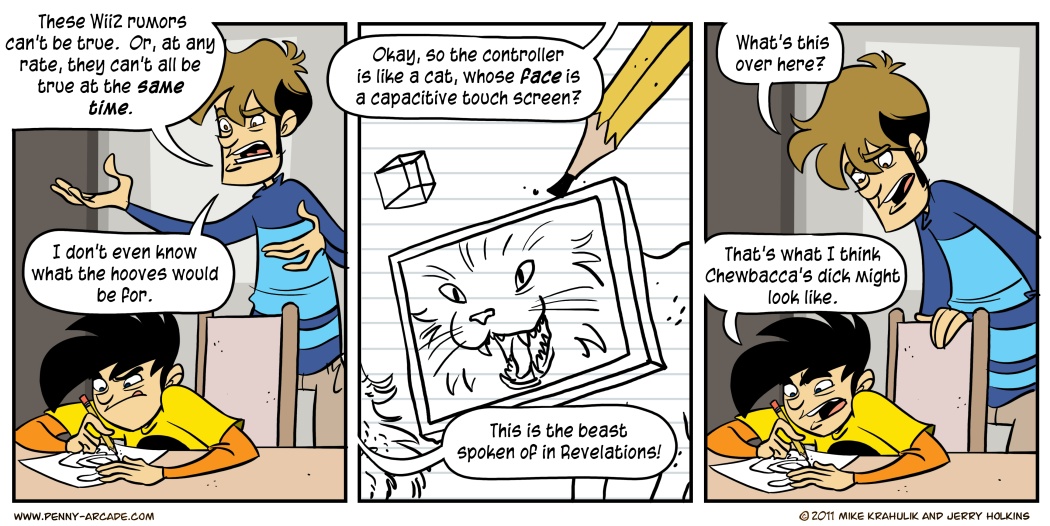We spent some time in Child of Eden’s incredible fourth archive yesterday morning, Passion, and I don’t know if it’s a spoiler to say that you play the part of time in an interactive opera based on human technological achievement. If that happens in any other game, ever, I must have missed it. What we’ve got here is a shooter in reverse, one where you make every entity more beautiful with each shot. The raw clusters of instinct you encounter aren’t just corrupt: they’re so broken that they don’t want to be fixed, and they’ll kill you for trying.
I don’t know. That communicates to me.
The only thing to be said about it is that it’s not long, even by today’s standards of long, which are not especially long. This is why most games in this genre don’t arrive as full retail products: shmups as a generality appear on a platform’s digital storefront, where a couple hours isn’t considered an affront. It’s ten dollars less than the typical game, which I suppose is some comfort, as is the constant euphoria.
There was a tempest a few days ago about a PR dude threatening to cut off people’s free games if they didn’t deliver good reviews, referring specifically to the reception of Duke Nukem Forever. People generally know better than to send us their games, so the thing he’s threatening to do describes the normal state of affairs in our dark tower. If you use the whole scale, or don’t use a scale, why should they give you a Goddamned thing? What do you think the purpose of a review copy is? The response to this has been precious.
I was trying to explain this to Gabriel yesterday: it’s the job, the actual job, of PR to ensure that the game gets a soft landing in the press. You might think, as he did, that a game’s score is a function of its quality. It’s a factor, certainly. But it’s a rare title that breaks out of the 7.5 to 9 range, isn’t it? That’s not innumeracy, it’s the warping field generated by this relationship. As a young man, I might have used the F-word more frequently in my depiction of this phenomenon. I might have taken it upon myself to rail with greater fury and make dire proclamations. Now I just look at it and see its shape, in the dispassionate way I might look at a biopsy of someone else’s cancer.
There is nothing - let me repeat - there is nothing strange about what he said. It is only strange that he said it. What he described is the way it already works, which is why it didn’t seem weird to him as he was typing it. The relationship between publishers and the press is increasingly fraught, and with good reason; outside of a handful of truly massive outlets, the press literally has nothing to offer them.
(CW)TB out.
